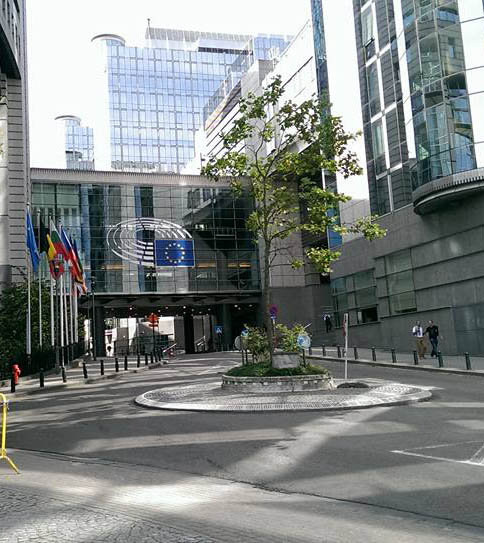25/03/2019
Print PageCancer research must have a social impact – A new strategy concept for Europe

The growing number of cancer cases in Europe is causing major challenges for the health care systems. According to studies, the number of people being diagnosed with cancer each year will rise from 3.6 million to 4.3 million in the next 20 years. This is in addition to the number of patients already living with a cancer diagnosis.
In the latest special issue of Molecular Oncology, the scientists call for a comprehensive, Europe-wide cancer strategy to translate research results into European health care more effectively in the future. The goal of ensuring a long life expectancy for three out of four cancer patients by 2030 in countries with effective health care systems is, they claim, ambitious, but certainly realistic. For this to happen, European cancer research will have to come together to form a joint “translational research platform” so that it can, for instance, run joint clinical trials, harmonize the evaluation of data in different countries and develop effective prevention concepts. In addition, the authors say it is necessary to bring Europe’s Comprehensive Cancer Centers up to the same level so that all countries can benefit from the latest prevention and treatment methods.
The German Cancer Consortium (DKTK) is presented in the publication as an example of how the competencies of leading cancer centers can be pooled at national level. Within the consortium, university hospitals at seven partner locations collaborate with the German Cancer Research Center (DKFZ) in Heidelberg to translate promising results from basic research into clinical practice as quickly as possible. The consortium, which is funded by the German national and federal state governments, expands academic structures and scientific infrastructure to facilitate connected cancer research in Germany. It creates positions for clinically oriented cancer research experts so as to broaden career prospects in the field of translational cancer research. Technical platforms give every site access to new methods and research data, while clinically relevant, multi-center projects receive additional funding.
“The DKTK has taken an important step, bringing together in one platform certified Comprehensive Cancer Centers that are particularly active in research,” says Ulrik Ringborg of the Karolinska Institutet in Sweden, who is Chair of the DKTK’s Scientific Advisory Board and Secretary General of the European Academy of Cancer Sciences. “So it’s also a real pioneer for joint European cancer research.” Michael Baumann, Scientific Director of the German Cancer Research Center and Spokesperson for the DKTK, emphasizes the importance of strengthening the European scientifi c arena in this field: “For this, the European networks will need to be supported by national networks like the DKTK as well.”
Through its published guidelines, the scientific community of the European cancer centers hopes to support policymakers in Brussels as they develop a cancer plan over the coming months. Michael Baumann says, “Like the German government, which recently declared a National Decade Against Cancer, the European Parliament is sending an important signal to speed up the fight against cancer.”
Original Publication:
Special Issue Molecular Oncology: Boosting the Social Impact of Innovative Cancer Research. 1st March 2019, DOI 10.1002/1878-0261.12335